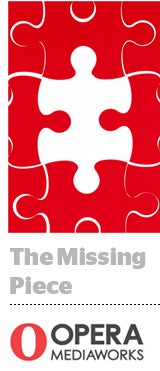 Deals fall through all the time. But the failed acquisition of Opera’s ad business could be a signal that China’s western buying spree is liable to hit a few regulatory snags.
Deals fall through all the time. But the failed acquisition of Opera’s ad business could be a signal that China’s western buying spree is liable to hit a few regulatory snags.
In February, a consortium of Chinese companies, which comprises mobile game maker Kunlun and security software provider Qihoo, announced its intention to buy up all of Opera’s assets in a $1.2 billion bid to shore up their businesses at home and expand internationally.
“Globalization is a huge focus for many of the major Chinese companies which are looking to grow their user base abroad after they reach market dominance at home,” ironSource CMO Omer Kaplan said to AdExchanger at the time.
Opera shareholders were cool with it. But regulators had another idea, and the deal failed to get the blessing of the Committee on Foreign Investment in the United States by Friday’s deadline. Opera shares took a tumble.
By Monday, a restructured offer was on the table – $600 million for Opera’s mobile and desktop browser business, its performance and privacy apps, its tech licensing business (excluding Opera TV) and its nearly 30% stake in nHorizon, a mobile browser company in Beijing.
The assets being sold to the China contingent will be reorganized into a separate company structure – basically all of the consumer-facing stuff plus a few bits and bobs, but none of the advertising business, including Opera apps and games, Opera’s OTT arm Opera TV and Opera Mediaworks. (In a blog post, Mediaworks CEO Will Kassoy said his part of the company will continue with its growth plans and that the leadership will remain intact.)
Opera referred to the three units now no longer being included in the China deal as the “remaining businesses.”
But they’re quite lucrative. And the rejiggered offer is a bit odd, considering that what remains composes a large portion of Opera’s business. Total revenue for the company was $163.5 million in Q1 2015. Mobile advertising was responsible for $117.1 million of that.
What went wrong? The answer may boil down to international privacy worries. Opera’s China-based buyers would’ve been privy to mobile audience data available through its ad business.
A Kulun spokesperson told Reuters that Opera’s ad unit involved “very many users’ privacy,” which would mean an “extremely rigorous” investigation that could have delayed the original deal by six months or a year.
The concern could stem from US regulators not wanting to create a situation in which the Chinese government has access to US users’ data. Chinese tech companies can be required to turn over data if government departments ask for it.
And that could be a kink for Chinese companies getting hot on foreign M&A, of which there’s been quite a lot recently.
Chinese mobile ad platform Mobvista bought app monetization company NativeX in February, and mobile SSP Smaato got scooped up by a Beijing-based offline marketing service provider called Spearhead Integrated Marketing Communications Group in June. In July, Mobvista struck again with the acquisition of Danish behavioral analytics platform GameAnalytics in July. And back in March 2015, Chinese app developer Cheetah Mobile shelled out for French mobile ad tech company MobPartner.












